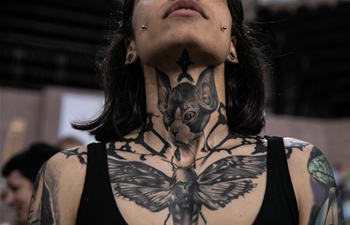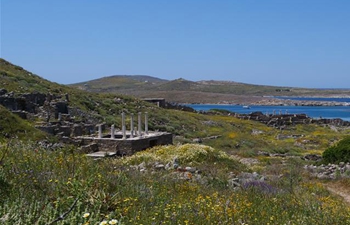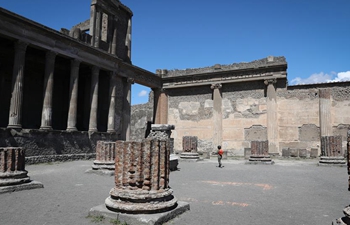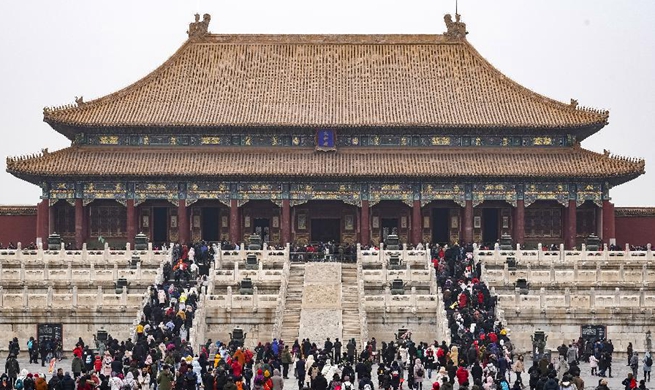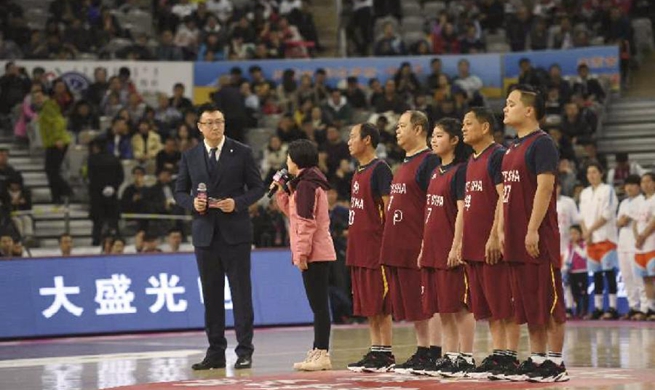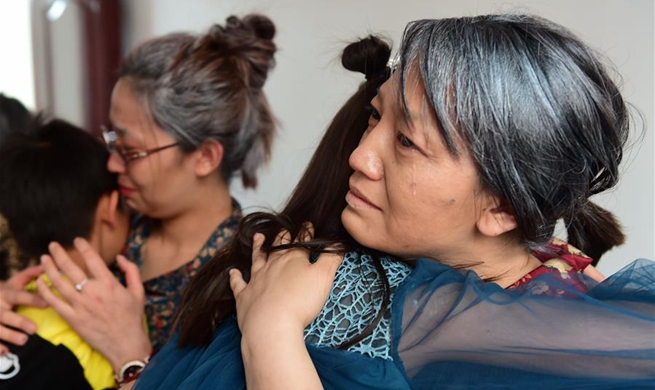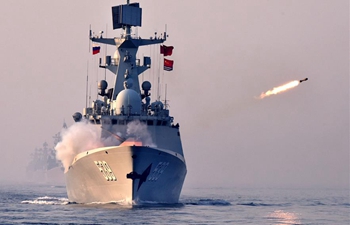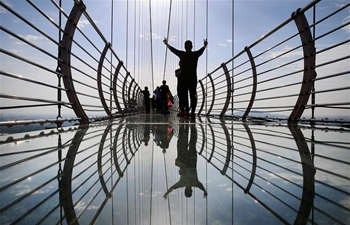by Jamal Hashim, Shaalan Ahmed
BAGHDAD, May 12 (Xinhua) -- A year has passed since Iraq's landmark national elections, but the tough task of Iraq's recovery is still far from reach amid daunting internal and external conflicts.
The country's elections were held on May 12, 2018, as millions of Iraqis went to polling centers to elect 329 parliamentary representatives in the first general election after Iraq's victory over the Islamic State (IS) militant group in December 2017.
After the Independent High Electoral Commission (IHEC) announced the results, there were claims of widespread fraud linked to the electronic counting of votes.
The outgoing parliament held an emergency session and passed an amendment to the electoral law that cancelled the votes of internally-displaced and overseas voters and mandated a full manual recount for all other votes.
Finally, IHEC released the final results on Aug. 9, showing the political coalition al-Sairoon, led by Muqtada al-Sadr, won most seats in the polls with 54 seats in the Iraqi 329-seat parliament. It also showed that al-Fath coalition, led by Hadi al-Ameri, came in the second place with 48 seats.
More than six months has passed since Adel Abdul Mahdi was named as prime minister, his government still rowing hard to solve successive crises.
However, it was not easy to form a new government under the intense differences among the Iraqi factions, but the failure of forming government raised the prospect of further unrest as the country was struggling to rebuild and recover after three years of war against the IS extremist militants.
The dangerous situation pushed Abdul Mahdi to announce in last mid-October a partial lineup of his cabinet, but after more than five months, Abdul Mahdi has failed to complete his 22-cabinet members as he could not secure the needed approval by the parliament for four key ministers of defense, interior, justice and education due to profound disputes among the political blocs.
Sabah al-Sheikh, an Iraqi political analyst, told Xinhua that the differences and intersections among the major political parties and their parliamentary blocs are the main reason that hampers smooth progress of the political process in the country.
Al-Sheikh believes that "the current political system is tainted with corruption and internal squabbles over power, and that some of them allow external powers to interfere and exploit these divisions, thereby weakening the government."
Many of the country's political parties have built their own militias and gained influence and power throughout years of spat across the country after 2003. None of them is willing to lose their gains.
"As a result for the political system since 2003, Iraqis continued suffering from a lack of basic services, such as potable water, electricity, adequate healthcare and employment opportunities, let alone the consequences of three years of war against IS group, as billions are required to rebuild infrastructure and to resettle displaced people," al-Sheikh concluded.
Nevertheless, as the security situation has dramatically improved since the victory over IS group in late 2017, Abdul Mahdi ordered to remove thousands of concrete security walls in Baghdad in a move that reflects returning of life to normality.
The walls, which were built during the sectarian strife in 2007, are now to be completely removed gradually from the heavily fortified Green Zone, Baghdad's neighborhoods and many streets, al-Sheikh said.
Abdul Mahdi tried to activate the country's economy with agreeing with foreign companies to implement significant projects, including a 1.07-billion-U.S. dollar deal with a Chinese company to process associated gas extracted from Iraq's southern giant Halfaya oilfield.
He also signed contracts within a roadmap deal of 14 billion dollars to develop power generation projects in the country, and he announced that his government is in the process to increase oil production that would provide dozens of thousands of jobs opportunities.
Senior Iraqi politicians admitted that the failure to complete the government of Abdul Mahdi for long time has become intolerable and may increase the gap between the people and the ruling political class.
"The gap between the people and the political class and the continuation of political division is a failure for everyone, especially the parties who had a direct role in the formation of the current government," said Ammar al-Hakim, a Shiite cleric and head of the Coalition of Reform and Reconstruction, the largest coalition in the Iraqi parliament.
Political analyst Nadhum al-Jubouri told Xinhua that he believes that the tension in the Middle East by the U.S. sanctions on neighboring Iran also overshadowed the political scene in Iraq and added more divisions among Iraqi factions.
"Some parties and politicians are strongly opposing the U.S. sanctions against Iran, and fiercely stand against the U.S. threats, while others support the U.S. attitude toward Iran," al-Jubouri said, adding that this situation is worsening the Iraqi political scene and hampering the implementation of its program.
However, al-Jubouri believes that Abdul Mahdi made a remarkable progress, during his over six months in office, in the file of foreign relations and openness to all countries.
"Iraq has been pursuing balanced policy, which builds bridges of friendship and cooperation with all friends and neighbors, including neighboring Iran and Saudi Arabia," al-Jubouri added.
"Iraqi top officials have made successful visits to many regional and world countries and signed a lot of economic, political and security agreements to boost cooperation with these countries," he added.





